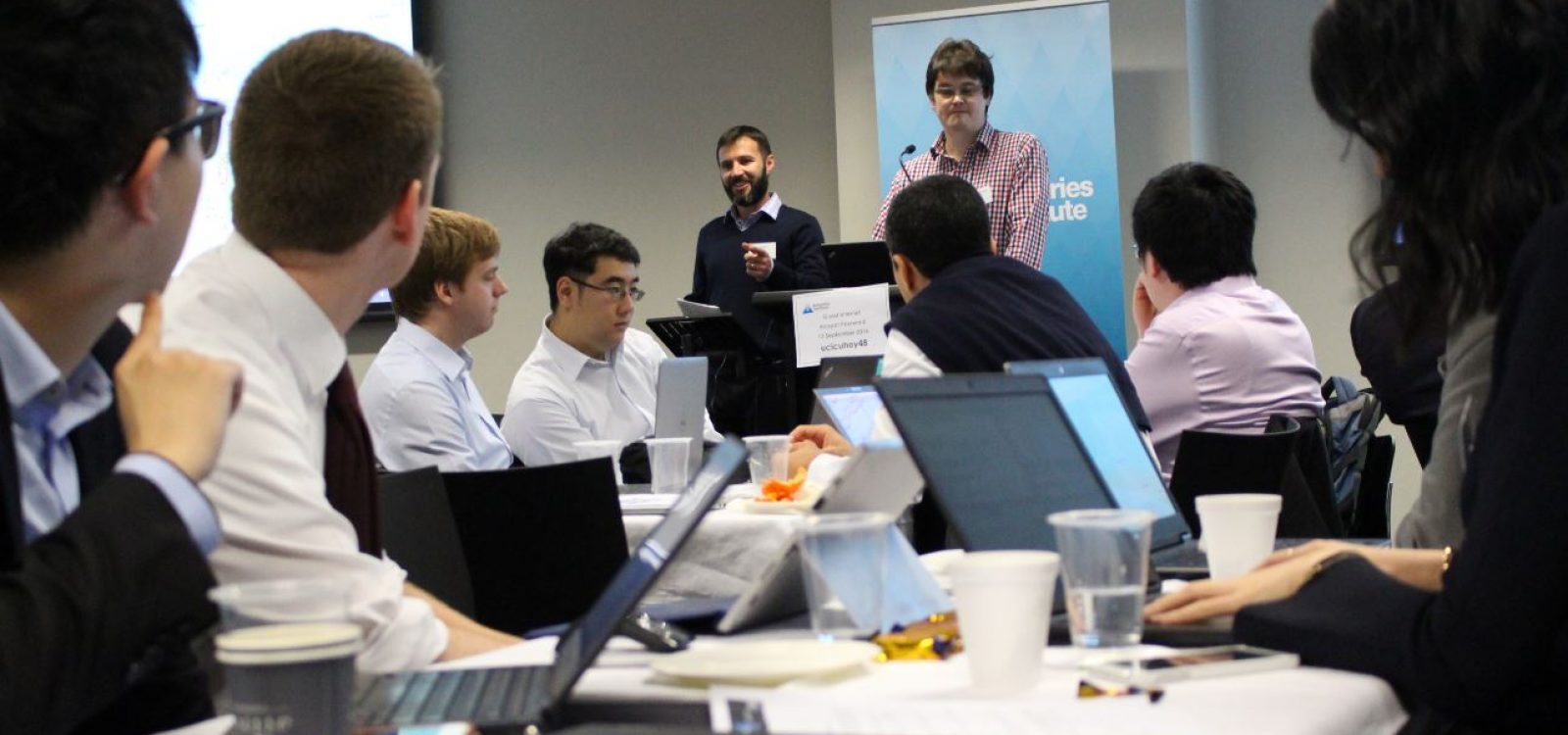
Data Analytics in action
The Actuaries Institute ran a series of interactive workshops to challenge programming and data analytics skills at its 2016 Data Analytics Seminar last week.
The ‘Data is Power’ Seminar (Tuesday 13 September) featured an afternoon of practical workshops with worked example code and tutors to assist delegates.
A broad range of modern predictive learning techniques, including nearest neighbour, neural nets, penalised regression and tree-based ensembles were covered.
“I thought this provided a good mix and broke up the day and kept the participants engaged,” said one of the attendees, Nathan Bonarius from Rice Warner.

Actuaries got stuck into R building models to predict outcomes with a high degree of non-linearity before going head to head to compete for the first place prize in a Kaggle competition on a dataset with over 200 variables.
“Actuaries have the perfect chance to have a big impact in this area. There may be a little to learn initially but the core skills are the same,” said delegate Basem Morris.
The winner of the Kaggle competition on the day was Melissa Tam, an actuary at Finity in Melbourne.
“Melissa won the prize on the day because her model best optimized some of the parameters for the best performing algorithm,” said Hugh Miller from the Organising Committee.
The competition asked delegates to predict telco customer’s future behaviour (whether they upgrade their product holding) based on 230 available predictor variables.
“It was challenging because it involved a larger number of variables, as well as real-world issues such as missing values and categorical variables with many different field values,” said Hugh.
The final winner (decided a week later on Tuesday 20 September) was Stephen Lau, (another) actuary from Finity.
Stephen attributed the win to a combination of a larger ‘forest’ of tree-based models, better handling of missing variables and incorporating some of the categorical variables with many levels.
“Congratulations to Stephen! A special mention also must go to Juan Luong, from Perth – he wasn’t at the event on the day, but did produce the best performing prediction model in the subsequent week,” said Hugh.

The morning featured presentations focused on trends in the data analytics field with someone from outside the industry (an engineer by training), Bob Williamson (pictured above) of Data61, who specializes in data, challenging delegates on the value and process of cleaning data.
“Raw data is an oxymoron,” said Bob.
Another delegate on the day, Basem Morris from Deloitte reflected after Bob’s presentation: “often the most important ingredient in data analytics is not the data, rather it’s common sense.”
“It was good to see the government at the leading edge of many of the new techniques being applied in the data analytics space,” said delegate Nathan Bonarius on Bob’s talk.
“His work on integrating risk measures into machine learning models is something that members of the Actuaries Institute should keep an eye on because it will be directly relevant to our traditional working space,” said Nathan.
Adrian Smolski (pictured below) of MapR gave a presentation showcasing the plethora of technologies that are being developed to house and manage large datasets and the difficulty in bringing it all together.
“These are areas where actuaries may traditionally not have the right skillset and may need outside help,” said Nathan.
 The second session featured presentations from Alex Macoun (Quantium) and Lorna Ash (RB) which brought to light some interesting examples of data analytics in practice.
The second session featured presentations from Alex Macoun (Quantium) and Lorna Ash (RB) which brought to light some interesting examples of data analytics in practice.
“Lorna’s presentation showed just how actuaries can add value in industries outside of financial services, such as media and FMCG,” said Basem.
The speakers discussed using a scientific process with control groups to improve marketing attribution analysis, and the benefits of updating strategies over time as new information becomes available, and trends change with time.
“With the amount of data being generated these days and current technological advancements, data analytics is touching every part of our lives,” said Basem.
“Actuaries have the perfect chance to have a big impact in this area. There may be a little to learn initially but the core skills are the same.”
“Thumbs up to the organising committee for an informative and interactive day. I look forward to the next one.”

CPD: Actuaries Institute Members can claim two CPD points for every hour of reading articles on Actuaries Digital.






